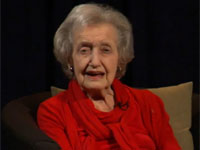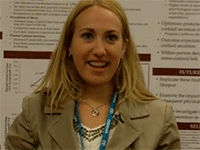Psychological Science Is Important (video)
APS Executive Director Alan G. Kraut
Psychological science is important, as APS Executive Director Alan G. Kraut reminds us. By itself, psychological science produces a rich understanding of behavior. When paired with behavioral investigation, many other fields of scientific inquiry produce a richer understanding of our world.
When he was APS President, John Cacioppo pointed out that an analysis of thousands of scientific journals (and literally millions of scientific articles) had identified psychological science — along with math, physics, and chemistry — as one of seven core disciplines that produces research cited widely by scientists in other fields.
In fact, APS Past President Walter Mischel heralded a coming “Golden Age” for psychological science based on boundary-crossing developments of mind, brain, behavior, and genetics; his prediction was later echoed by voices outside the field, including David Brooks and Malcolm Gladwell.
The work of researchers like Cacioppo and Mischel exemplifies the ways in which psychological science is addressing many of the biggest challenges that our society faces, Kraut says. From AIDS to literacy to racism and violence, these challenges can’t be solved without scientific inquiry into human behavior. That’s why governments from the United States to Qatar are investing in psychological science and why psychological scientists should take pride in the experimental questions they ask, the research they do, and the answers they find.
Kraut’s talk, “Psychological Science Is Important,” was delivered during the Opening Ceremony of the 24th APS Annual Convention in Chicago, IL, USA.





Comments
Hi! I’m an argentinian professor of psychology and I’d be very interested in show this video to my students. have you got a version subtitled in Spanish? Thanks very much
APS regularly opens certain online articles for discussion on our website. Effective February 2021, you must be a logged-in APS member to post comments. By posting a comment, you agree to our Community Guidelines and the display of your profile information, including your name and affiliation. Any opinions, findings, conclusions, or recommendations present in article comments are those of the writers and do not necessarily reflect the views of APS or the article’s author. For more information, please see our Community Guidelines.
Please login with your APS account to comment.